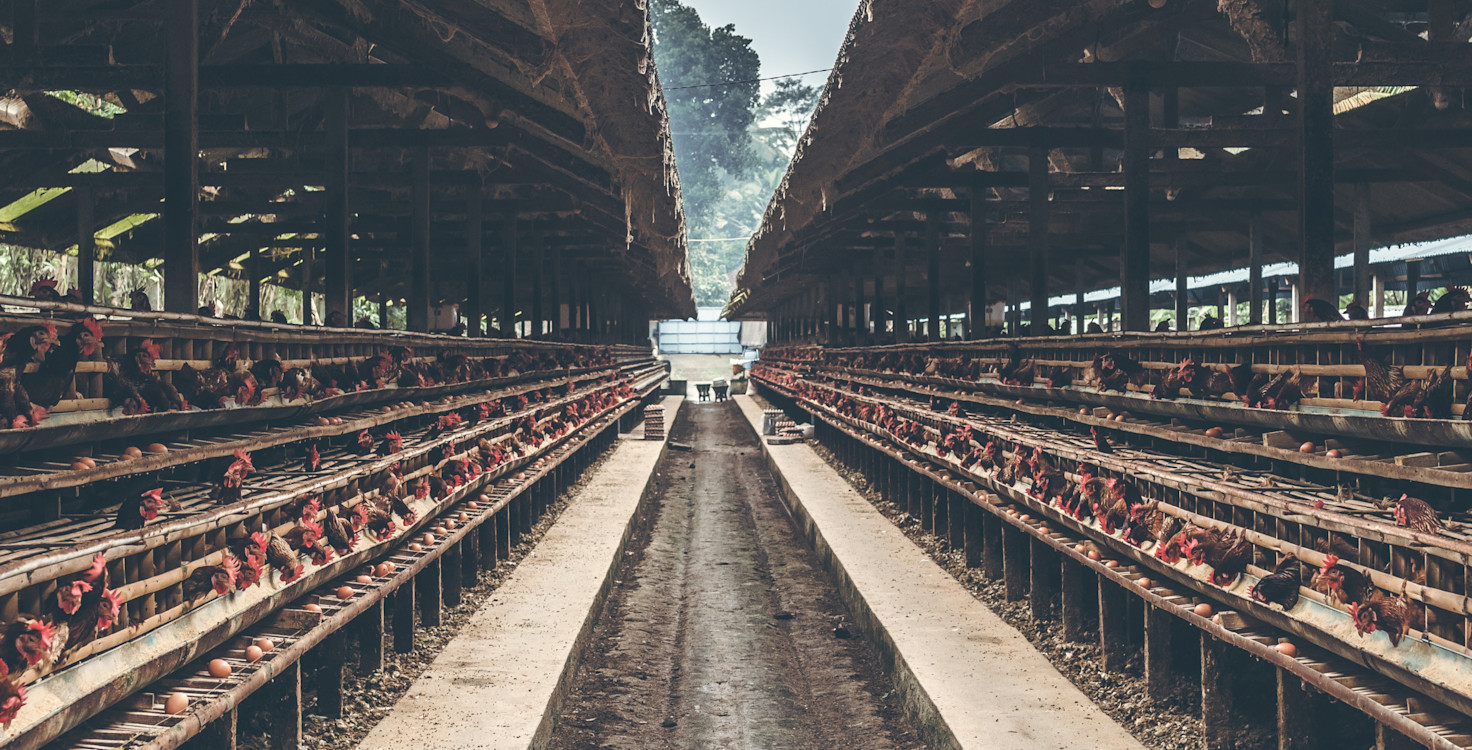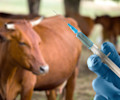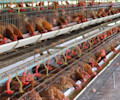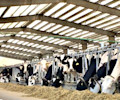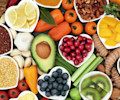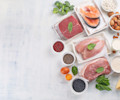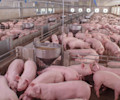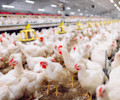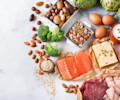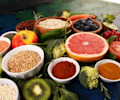32 large Asian meat, fish and dairy producers ranked by new investor index, backed by $6.1 trillion investor network. Includes major suppliers to McDonalds and KFC, such as Chinese firm Fujian Sunner and Venky’s India.
Despite recent fears of a new strain of H7N9 bird flu emerging in China – four Asian firms are given the top ranking for food safety, with China-based dairy producer, Inner Mongolia Yili highlighted for best practice.
China’s antibiotics risk highlighted: China is the world’s largest consumer of antibiotics in agriculture, yet the Index ranks 15 out of 16 Chinese meat, fish and dairy companies (93%) as ‘high risk’ on antibiotics management – with the companies having little or no measures in place to reduce excessive use of the drugs.
Asian meat, fish and dairy sector also failing on emissions: 90% of Asian companies assessed rank ‘high risk’ on greenhouse gas emissions disclosure.
Norwegian firm Marine Harvest is top ranked company, with Thailand’s CPF is the top-ranked Asian firm, seventh in overall rankings.
(London, 26 June 2018). The Coller FAIRR Protein Producer Index, a ground-breaking new index for investors analysing how a $300bn group of 60 global food companies are managing critical environmental, social and governance (ESG) risks, has found that the large majority of meat, fish and dairy suppliers are failing to manage critical business risks including greenhouse gas emissions and antibiotic use.
In total, 52% of the Index (32 companies) are based in Asia including the largest by market cap: Inner Mongolia Yili.
The global ranking is produced by the $6.1 trillion investor network FAIRR which lists Aviva Investors and Schroders among its members. The Index aims to improve corporate disclosure on sustainability issues by all major livestock, dairy and farmed fish producers to help investors capitalise on risks and opportunities in the sector.
The Coller FAIRR Index finds:
Asian livestock producers are showing leadership on food safety. Despite concerns of a new strain of H7N9 bird flu reported to be emerging in Chinese poultry, 44% of the Index companies given the top ranking on food safety are from Asia. Inner Mongolia Yili (China), Vietnam Dairy (Viet), WH Group (China) and CPF (Thailand) are among only nine companies praised for the traceability of food products and feed production.
China and wider Asia failing on antibiotics: China is the world’s largest consumer of antibiotics in livestock production, yet 15 out of 16 of the meat, fish and dairy companies (93%) assessed by the Index are given the worst ‘high risk’ ranking for having little or no measures in place to reduce excessive use of antibiotics. This is despite growing levels of international action to combat antibiotic resistant superbugs. Of all 32 Asian companies assessed, 97% are ranked ‘high risk’ on antibiotics, compared to only 10% of European companies assessed.
Asian animal agriculture undermining Paris agreement: The global food supply chain is estimated to be responsible for over a quarter (26%) of global GHG emissions*, and Asian meat, fish and dairy suppliers sit at the heart of it. Yet 90% of the Asian Index companies were ranked ‘high risk’ for failing to manage or disclose their GHG emissions. This compares to only 50% of peers in Europe.
China Mengniu Dairy and Vietnam Dairy are both highlighted for diversification into plant-based alternatives to animal protein. For example, China Mengniu Dairy’s joint venture with WhiteWave Foods has helped to develop their plant-based dairy production.
Maria Lettini, Director of the FAIRR Initiative said,
“From fast food to fine dining, much of the food on our plates leads back to the Asian livestock and fisheries sector assessed by this Index. Investors in Asia will be encouraged by rising standards in areas like food safety. However, the failure to manage issues such as climate risk and the misuse of antibiotics is cause for concern. On antibiotics alone, the Coller FAIRR Index shows that most Asian meat, fish and dairy producers are ignoring the calls from regulators, health professionals and the financial community to manage and reduce their use of antibiotics. That failure puts both global public health and their business models at risk.
As megatrends like climate change, antibiotic resistance and food technology radically reshape the way we produce and consume meat, fish and dairy, the Coller FAIRR index will help institutional capital identify both best in class companies in Asia’s food sector and those at risk of long-term value destruction for failing to manage these critical business issues.”
Rebecca Lewis, Partner at asset management firm Arisaig Partners, headquartered in Singapore commented,
“This new Index offers investors both the opportunity to see how best practice is emerging in countries such as China, Vietnam and Thailand, and a reminder to keep a close eye on the long-term risks and unpriced externalities inherent in livestock and fisheries assets in Asia.”
“Investors have an increasing appetite for Asia’s animal protein sector and it’s no surprise that over half of the companies assessed by this Index are based in the region where building sustainable supply chains is a relatively new concept. We believe that excitement over the forecast growth in consumption of animal protein in Asia, should be tempered with an awareness that environmental and social issues such as pollution, deforestation and abuse of antibiotics all need careful management and risk a reduction in long term returns for shareholders. As an investor specialising in the emerging markets consumer sector we continue to monitor these risks carefully and the Coller FAIRR Index will assist in this process.”
One of the sustainability criteria assessed by the Index is ‘deforestation and biodiversity loss’ and Asian companies scored poorly in this area too. In total 97% of Asian companies, including all China-based companies, are ranked as high-risk on deforestation. Chinese companies are exposed to deforestation risks in their feed supply chains. By 2026, China’s soybean imports – a significant feed commodity – is expected to increase by 143 million tons, 48% more than the amount the current leading soybean producer (Brazil) will export
Notes to editor
For more information or for exclusive interviews Maria Lettini, Director of F****AIRR, please contact:
Mike Weber, ESG Communications,<br />t: + 44 (0)7932 577755 | e: mike@esgcomms.com;
The overall league table of results is below. A full report with all results and details of the Coller FAIRR Protein Producer Index is available on request. The summary report can be downloaded here
Methodology: All companies are given an overall ranking of ‘low’, ‘medium’ or ‘high’ risk, based on their scores against eight sustainability risk factors. These are based on stakeholder understanding of environmental, social and governance (ESG) issues and are specifically: Greenhouse gas emissions; Deforestation and biodiversity loss; Water scarcity and use; Waste and pollution; Antibiotics; Animal welfare; Working conditions and Food safety. All eight risk factors and KPIs were weighted equally and each sustainability risk factor has several KPIs underlying its scoring – these are available in the methodology appendix of the main report. All scores are based on a company’s commitments, policies and disclosure. Note, ‘Sustainable proteins’ is an additional risk factor which was assessed but not scored and the definition of China does not include Taiwan. All valuations are based on market capitalization figures as of March 28th 2018.<br />* Reducing food’s environmental impacts through producers and consumers, J. Poore & T. Nemecek
Overall league ranking
Company Legal Name
Market Cap ($bn)
Country
Final Score
Ranking
Marine Harvest ASA
9.894
Norway
82
Low risk
Lerøy Seafood Group ASA
3.733
Norway
80
Low risk
Bakkafrost P/F
1.860
Faroe Islands
78
Low risk
Fonterra Co-operative Group Ltd
6.881
New Zealand
69
Low risk
Salmar ASA
4.726
Norway
67
Low risk
Cranswick PLC
2.120
UK
65
Medium risk
Charoen Pokphand Foods PCL
6.963
Thailand
65
Medium risk
Marfrig Global Foods SA
1.162
Brazil
62
Medium risk
Hormel Foods Corp
17.789
USA
60
Medium risk
Grieg Seafood ASA
1.035
Norway
55
Medium risk
Empresas AquaChile SA
0.580
Chile
53
Medium risk
Maple Leaf Foods Inc
2.919
Canada
53
Medium risk
Tassal Group Ltd
0.504
Australia
52
Medium risk
Tyson Foods Inc
26.291
USA
52
Medium risk
Grupo Nutresa SA
4.138
Colombia
48
Medium risk
Vietnam Dairy Products JSC
12.938
Vietnam
46
Medium risk
Scandi Standard AB
0.426
Sweden
43
Medium risk
BRF SA
6.906
Brazil
41
Medium risk
JBS S.A.
8.480
Brazil
38
Medium risk
China Shengmu Organic Milk Ltd
0.866
China
38
Medium risk
Pilgrim’s Pride Corp
6.093
USA
38
Medium risk
WH Group Ltd
15.632
China
36
Medium risk
MHP SE
1.458
Ukraine
36
Medium risk
RCL Foods Ltd/South Africa
1.337
South Africa
35
Medium risk
Inner Mongolia Yili Industrial Group Co Ltd
27.029
China
32
High risk
NH Foods Ltd
4.386
Japan
31
High risk
New Hope Liuhe Co Ltd
4.865
China
30
High risk
GFPT PLC
0.534
Thailand
30
High risk
QAF Ltd
0.416
Singapore
28
High risk
China Mengniu Dairy Co Ltd
18.555
China
28
High risk
Beijing Sanyuan Foods Co Ltd
0.944
China
27
High risk
COFCO Meat Holdings Ltd
0.631
China
27
High risk
LDC SA
2.549
France
26
High risk
Inghams Group Ltd
0.993
Australia
25
High risk
Nippon Suisan Kaisha Ltd
1.611
Japan
25
High risk
Great Wall Enterprises Co Ltd
0.840
Taiwan
24
High risk
Henan Shuanghui Investment & Development Co Ltd
13.366
China
22
High risk
Sanderson Farms Inc
2.735
USA
20
High risk
Shandong Oriental Ocean Sci-Tech Co Ltd
0.910
China
20
High risk
Muyuan Foodstuff Co Ltd
8.697
China
19
High risk
QL Resources Berhad
2.104
Malaysia
19
High risk
Fujian Sunner Development Co Ltd
2.702
China
18
High risk
Guangdong Wens Foodstuffs Group Co Ltd
17.537
China
17
High risk
Prima Meat Packers Ltd
1.407
Japan
17
High risk
Japfa Ltd
0.581
Singapore
16
High risk
Almarai Co JSC
14.766
Saudi Arabia
15
High risk
Fortune Ng Fung Food Hebei Co Ltd
1.324
China
14
High risk
Chuying Agro-pastoral Group Co Ltd
1.110
China
14
High risk
China Modern Dairy Holdings Ltd
1.047
China
12
High risk
Thaifoods Group PCL
0.705
Thailand
10
High risk
Australian Agricultural Co Ltd
0.590
Australia
10
High risk
Beijing Shunxin Agriculture Co Ltd
3.622
China
10
High risk
Venky’s India Ltd
0.827
India
7
High risk
Seaboard Corporation
4.467
USA
7
High risk
Cherkizovo Group PJSC
1.232
Russia
5
High risk
San Miguel Food and Beverage Inc
2.304
Philippines
5
High risk
Industrias Bachoco SAB de CV
3.118
Mexico
5
High risk
Cal-Maine Foods Inc
2.280
United States
4
High risk
Grupo Bafar SAB de CV
0.657
Mexico
3
High risk
Inti Agri Resources Tbk PT
0.532
Indonesia
0
High risk
About FAIRR
The FAIRR Initiative is a collaborative investor network. It aims to raise awareness of the material impacts factory farming and poor animal welfare can have on investment portfolios, and works to help investors share knowledge and form collaborative engagements on these issues. www.fairr.org. FAIRR’s members (as of 23/05/18) are: Acrux Partners (UK): ACTIAM (Netherlands); Active Earth Investment (UK); Aegon Asset Management (Netherlands); Amazonia Wealth Management (formerly Treebeard Financial Planning) (US); Appleseed Capital (US); Arisaig Partners (Asia) Pte Ltd (Singapore); Auriel Equity Investors LLP (Jersey); Australian Ethical Investment Ltd. (Australia); Aviva Investors (UK); Bard Family Trust (US); Barrow Cadbury Trust (UK); Boston Common Asset Management (US); Callidus Capital Corporation (Canada); Calvert Research and Management (US); Castlefield Partners (UK); Christian Super (Australia); Clean Yield Asset Management (US); Coller Capital (UK); ColorStone Co. Ltd (China); Cornerstone Capital (US); Cruelty Free Super (Australia); Dana Investment Advisors (US); Dignity Health (US); Domini Impact Investments (US); Dunning Capital, LLC (US); E.G. Thomson Holding Ltd (UK); EBG Investment Solutions AG (Switzerland); Equity Investment Corporation (US); Esmee Fairbairn Foundation (UK); Etho Capital (US); Farmland LP (US); Five Seasons Ventures (UK); Green Century Capital Management, Inc. (US); Health Foundation (UK); Hermes Equity Ownership Services Ltd (UK); ICCR (Interfaith Center on Corporate Responsibility) (US); Impax Asset Management (UK); InvestEco Capital Corp (Canada); iSelect Fund (US); Jeremy Coller Foundation (UK); Joseph Rowntree Charitable Trust (UK); JPS Global Investments (US); Kames Capital (UK); Kempen Capital Management NV (Netherlands); Man Group (UK); Mirova (France); MP Investment Management A/S (Denmark); Natural Investments LLC (US); Neuberger Berman SRI Team (US); New Crop Capital (US); NN Investment Partners (Netherlands); Ohman (Sweden); Quantum Financial Planning LLC (US); Quiota (US); Robeco (Netherlands); Schroders (UK); Scotiabank Wealth Management (Canada); Seal Cove Financial (US); Socially Responsible Investment Coalition (SRIC) (US); Sonen Capital (US); Strathclyde Pension Fund (UK); Stray Dog Capital (US); Sturgeon Ventures LLP (UK); Sustainable Insight Capital Management (US); Swift Foundation (US); Sycomore Asset Management (France); Polden Puckham Charitable Foundation (UK); Trillium Asset Management (US); Triodos SRI Fund (Netherlands); UBS Asset Management (Switzerland); UFF – African Agri Investments (South Africa); Ultra Capital (US) University of California, Office of the CIO of the Regents (US); Valoral Advisors (Luxembourg); VaR Capital (UK); Walden Asset Management (US); Wellesley Group (UK); Zevin Asset Management (US)
